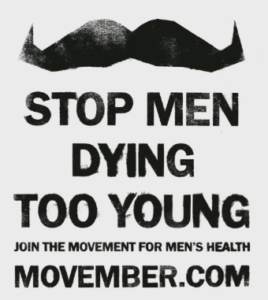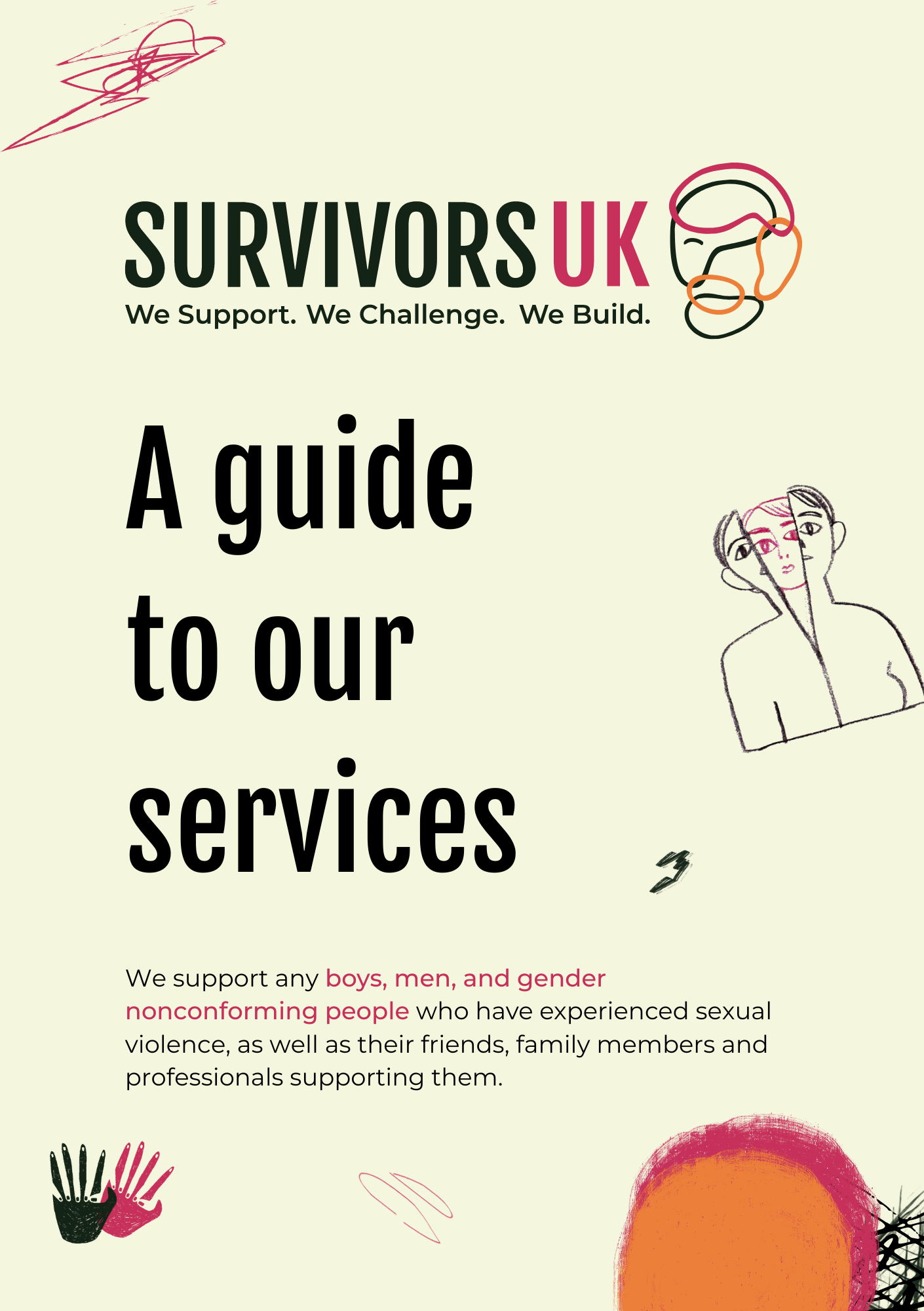
Movember and men’s health
 It is Movember which means that there is a particular focus on men’s health for this month, including testicular and prostate cancer. Therefore, I thought I would answer a couple of questions that men sometimes ask us on the helpline concerning prostate or testicular examination and how to cope with this.
It is Movember which means that there is a particular focus on men’s health for this month, including testicular and prostate cancer. Therefore, I thought I would answer a couple of questions that men sometimes ask us on the helpline concerning prostate or testicular examination and how to cope with this.
Q. I think I may have symptoms of testicular cancer but I am afraid to go to my GP as I know they will want to examine my testicles and I am worried that I won’t be able to cope when they touch me. Is there anything I can do to prepare myself?
A. It is common for all men to be a bit nervous about having a testicular examination, but for survivors it can be particularly challenging. There are some options to consider that might help.
1) Do a testicular self-examination first so that you get used to what the doctor will do. The Movember Foundation guide to self-checking may be helpful. If you would prefer to watch a video showing how to do this self-check, there is a YouTube video – which does show a man’s testicles – where Dr Hilary Jones teaches Charlie how to do this:
2) If you feel anything unusual and you then need to see a doctor for testicular examination, there are different ways to manage this. If your GP practice has more than one doctor, you could try to ensure that your appointment will be with the doctor you feel most comfortable with. Once you have explained that you are concerned about something to do with your testicles, you may want to:
i) tell the doctor that you are feeling nervous about being examined. If the doctor already knows that you are a survivor of sexual abuse, then you could remind them and say this is why you are nervous
ii) explain that it is difficult for you when someone touches your genital area, and explain to the doctor what would help you (see below)
iii) explain that if you say ‘stop’ at any point during the examination, you would like the doctor to pause what they are doing and take their hands away from you straight away
iv) if you find that you are having flashbacks during the examination then ask the doctor to stop, if you can, and use strategies for dealing with flashbacks. You might find the strategies from our friends at Living Well helpful to review
v) ask someone you trust, such as a partner, to examine your testicles so that you get used to someone else doing this.
vi) consider whether it would help to have a partner or friend with you at the appointment. They could wait for you outside or be in the room with you while you are being examined behind a screen or curtain.
Q. I think I may have symptoms of prostate cancer but I am afraid to go to my GP as I know they will need to examine my prostate and I am worried that I won’t be able to cope when this happens. Is there anything I can do to prepare myself?
A. Most men find a rectal examination very intrusive because it does involve the doctor putting their index finger into your back passage (anus). They need to feel the prostate gland, check its size and shape, and check for any abnormalities.
To prepare yourself for what this will feel like, you could put some silicone or water based lubricant gel on your finger and around the opening of your anus. Then very slowly and gently insert your index finger into your anus so that you can get used to how this feels. It helps if you pull your knees up as close to your chest as you can while you do this as this can help to straighten out the anal canal. This makes it easier for you to insert your finger.
If you are the sort of person who likes to know exactly what might happen during the examination, there is a YouTube video on BMJ Learning (start at 1:50) to show how a doctor does a rectal examination. The doctor shows the actual examination on a medical model, not a person:
https://www.youtube.com/watch?v=fUwLRtJN4Aw
You can also use the ideas suggested in part 2 of the previous question to help you cope with the examination itself.
Staying in good health and preventing ill health sometimes means that physically or emotionally uncomfortable medical examinations may be necessary. Doctors are very aware of how difficult these examinations can be for some patients so do tell them what might help you so that they can do their best to minimise any discomfort or distress.
Leave a comment below if there is anything you would like to say or add to this topic.
SurvivorsUK web/SMS chat is a helpline for men who have experienced sexual abuse either as a child or an adult. We also speak to their close friends and family. If you would like to access the web/sms chat and get immediate support, please click here.






